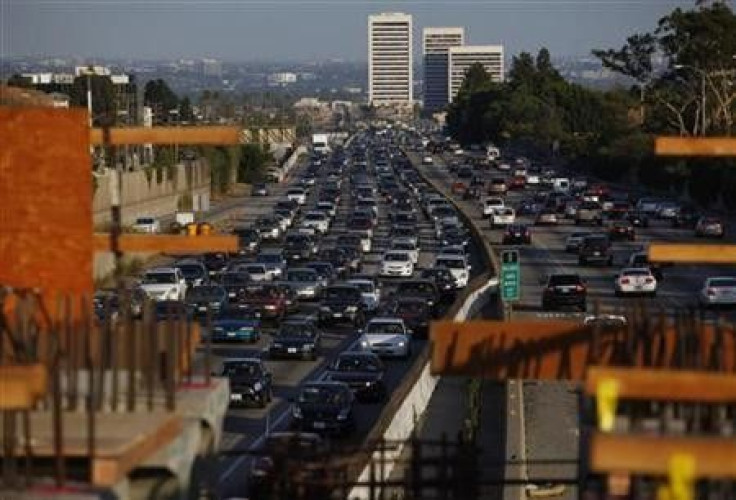Obama unveils sharp increase in auto fuel economy

Several major auto makers on Friday embraced the Obama administration's proposal to push the industry further away from once-dominant gas guzzlers to more lean and efficient vehicles.
The proposal, which is the result of months of negotiations between the Obama administration and auto makers, would require the companies to reach an average fuel efficiency across their U.S. fleets of 54.5 miles per gallon by 2025.
"This agreement on fuel standards represents the single most important step we've ever taken as a nation to reduce our dependence on foreign oil," Obama said at an event announcing the new standards.
Flanked by top auto maker executives, Obama said the new rules would lower the country's oil use by 2.2 million barrels a day over the next 15 years.
The rules will cut more than 6 billion tons of carbon emissions for the duration of the program.
"Can we do it? Well, we put a man on the moon; of course we can do this," said Fadel Gheit, senior analyst covering the oil and gas sector at Oppenheimer. "If the will is there, we will be successful and this is the best way to achieve this by pushing and cajoling."
While fleets would be required to reach corporate average fuel economy, or CAFE, standards of 54.5 mpg, under real world driving conditions that can sap fuel economy, consumers will likely get fewer miles per gallon in many cases.
The goal is still a major step up from current standards that require auto makers to achieve 35.5 mpg by 2016.
"Many OPEC oil ministers are now having sleepless nights, because of the millions of barrels of oil ... the U.S. will now not be importing," Democratic Congressman Edward Markey told Reuters in a telephone interview. Markey was co-author of the law that mandated higher fuel economy standards.
CHALLENGE FOR TRUCKS
The biggest auto sellers -- General Motors, Ford Motor Co, Chrysler, which is run by Italy's Fiat, Toyota Motor Corp and Honda -- have all backed the administration's plan.
The new program includes average increases in fuel economy of 5 percent for cars and 3.5 percent for light trucks through 2021, with a 5 percent increase for all vehicles after that.
"We have a challenge on trucks, but we think this is a fair way to handle it," Sue Cischke, Ford vice president for sustainability and the environment, told reporters at the event.
Mercedes-Benz, the luxury car line owned by German car and truck maker Daimler, did not back the new program, saying it "clearly favors large SUVs and pickup trucks."
To meet the new targets, auto makers will have to cut weight from their vehicles, develop smaller engines and boost fuel efficiency through direct injection, start-stop technology and turbochargers.
The Center for Automotive Research projected bringing cars and trucks to a 56 miles per gallon CAFE standard would cost about $6,700 per vehicle. The study has been criticized for overestimating the cost of technologies.
"I have to really question the sanity behind that," Dennis Virag, president of Automotive Consulting Group Inc, said of the new CAFE standard. "It's going to be a very difficult mark to achieve and I think it's going to be very costly."
The Obama administration declined to release any estimates on Friday about how the proposal will impact the retail costs of vehicles. It said it is still studying potential impacts and will release details later.
The Environmental Protection Agency and Department of Transportation, the agencies developing the new standards, will release the full details of the program by the end of September.
The agencies have pledged to undertake a comprehensive mid-term evaluation of the standards before finalizing the targets for cars and light duty trucks after 2021.
They are also considering implementing incentive programs to promote electric and plug-in hybrid vehicles, and plan to propose credits for efficiency improvements for air conditioners.
For more than 20 years, aluminum producers have been working with U.S. automakers to design more of the light weight metal into cars to lower emissions.
Following Obama's announcement, Randall Scheps, chairman of the Aluminum Association's Aluminum Transportation Group said in a statement, "Vehicles downweighted with aluminum are inherently more fuel efficient than heavier ones made from steel. Several leading vehicles use all-aluminum bodies, and we will see more vehicles go all aluminum in the next 10 years."
© Copyright Thomson Reuters 2024. All rights reserved.











